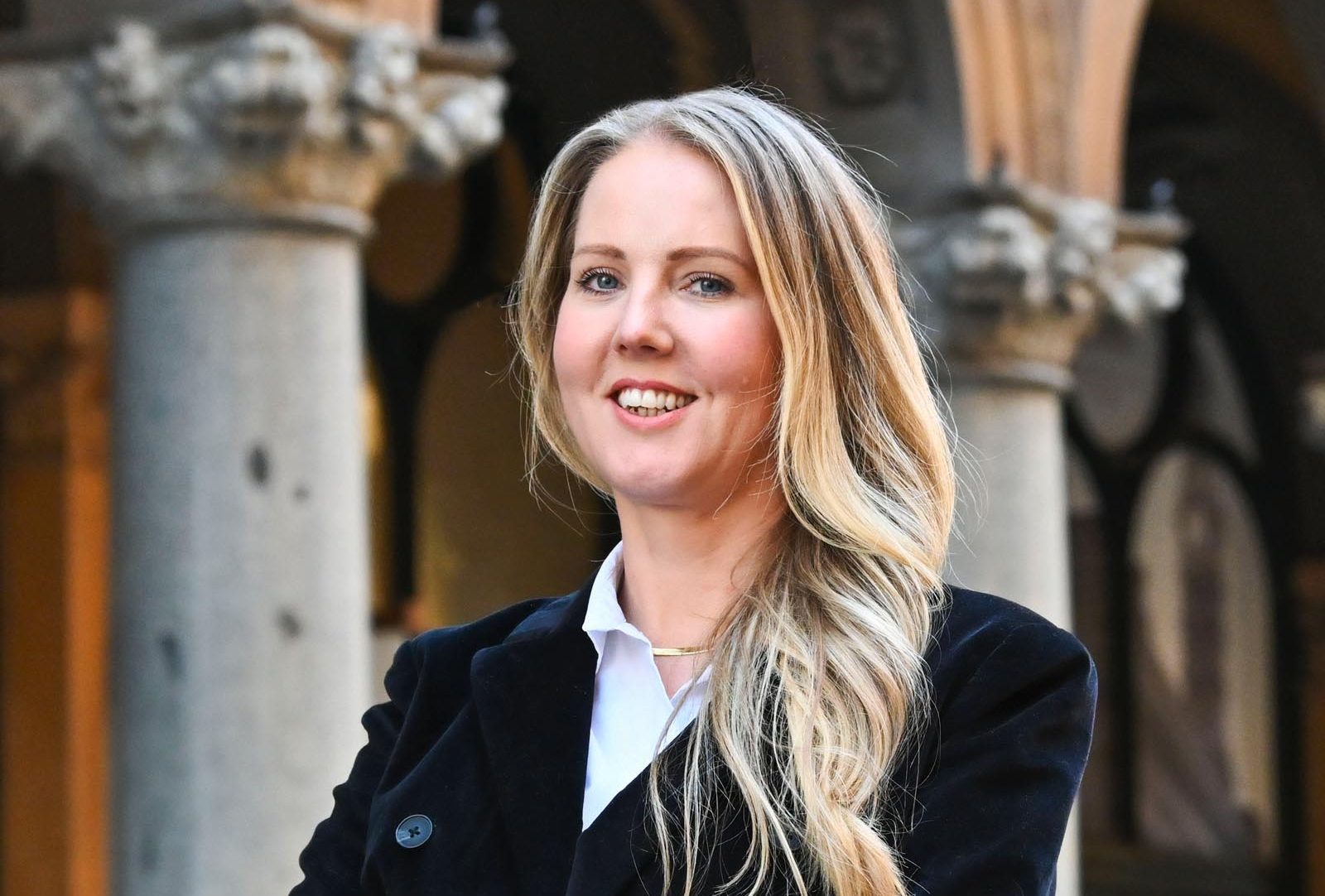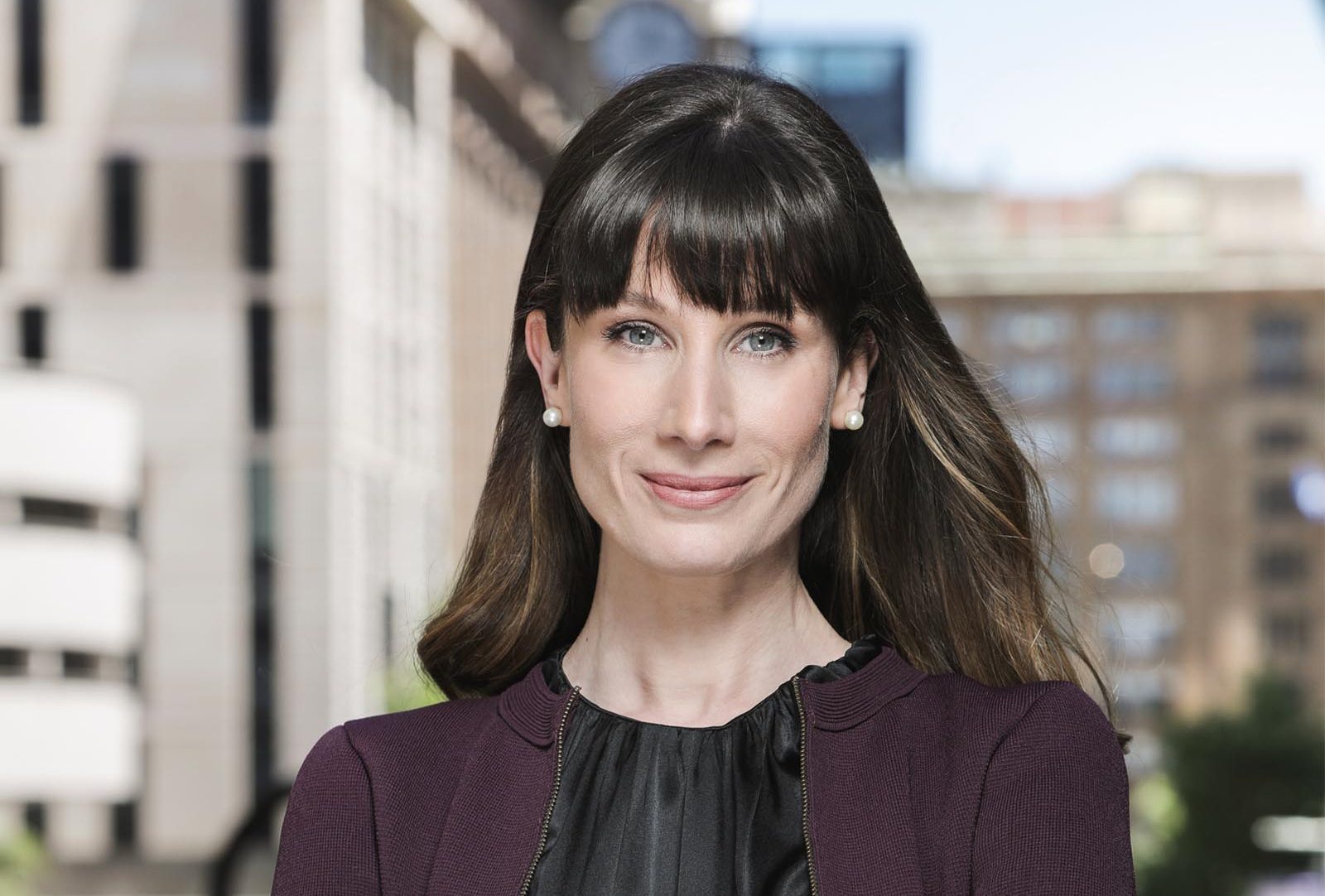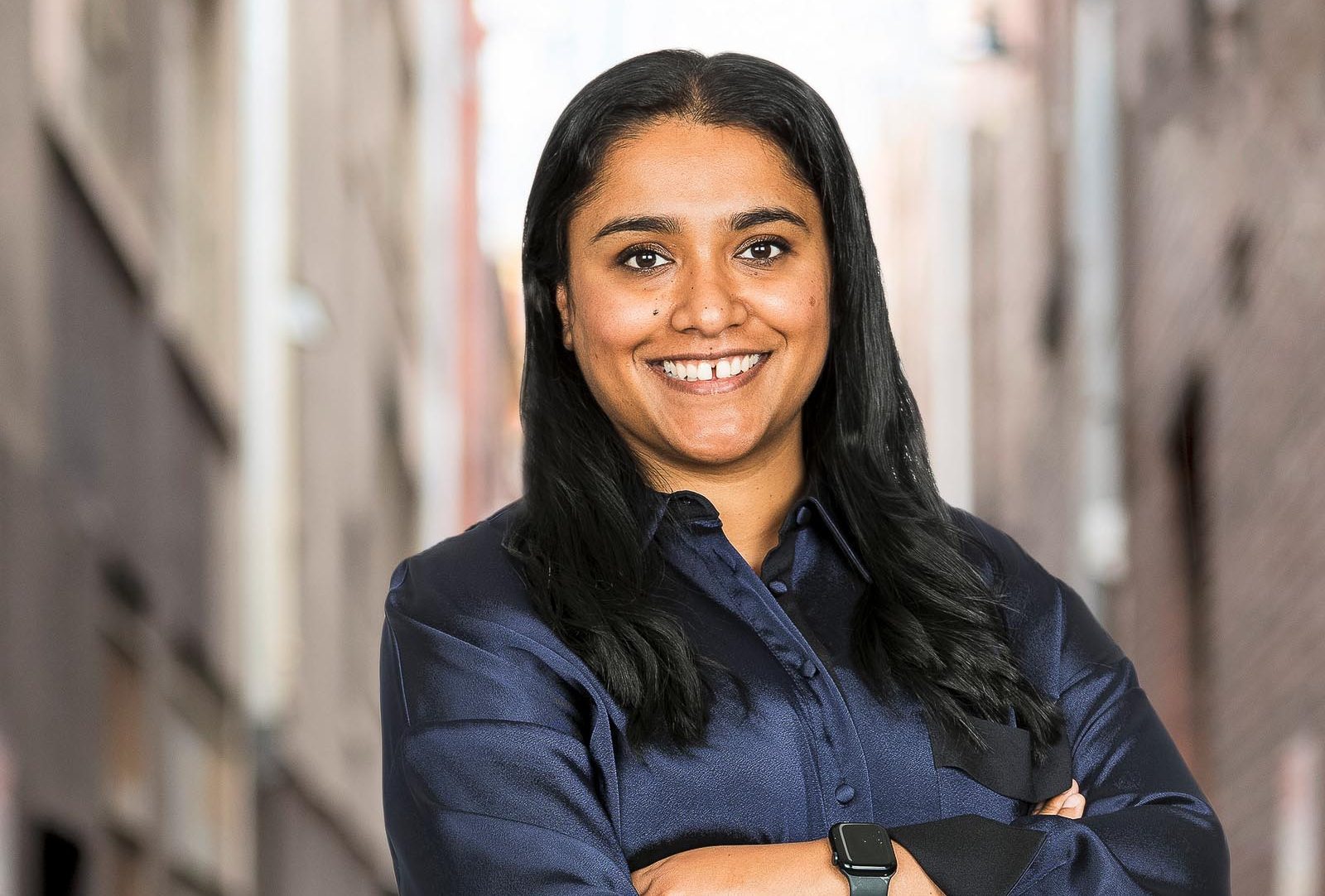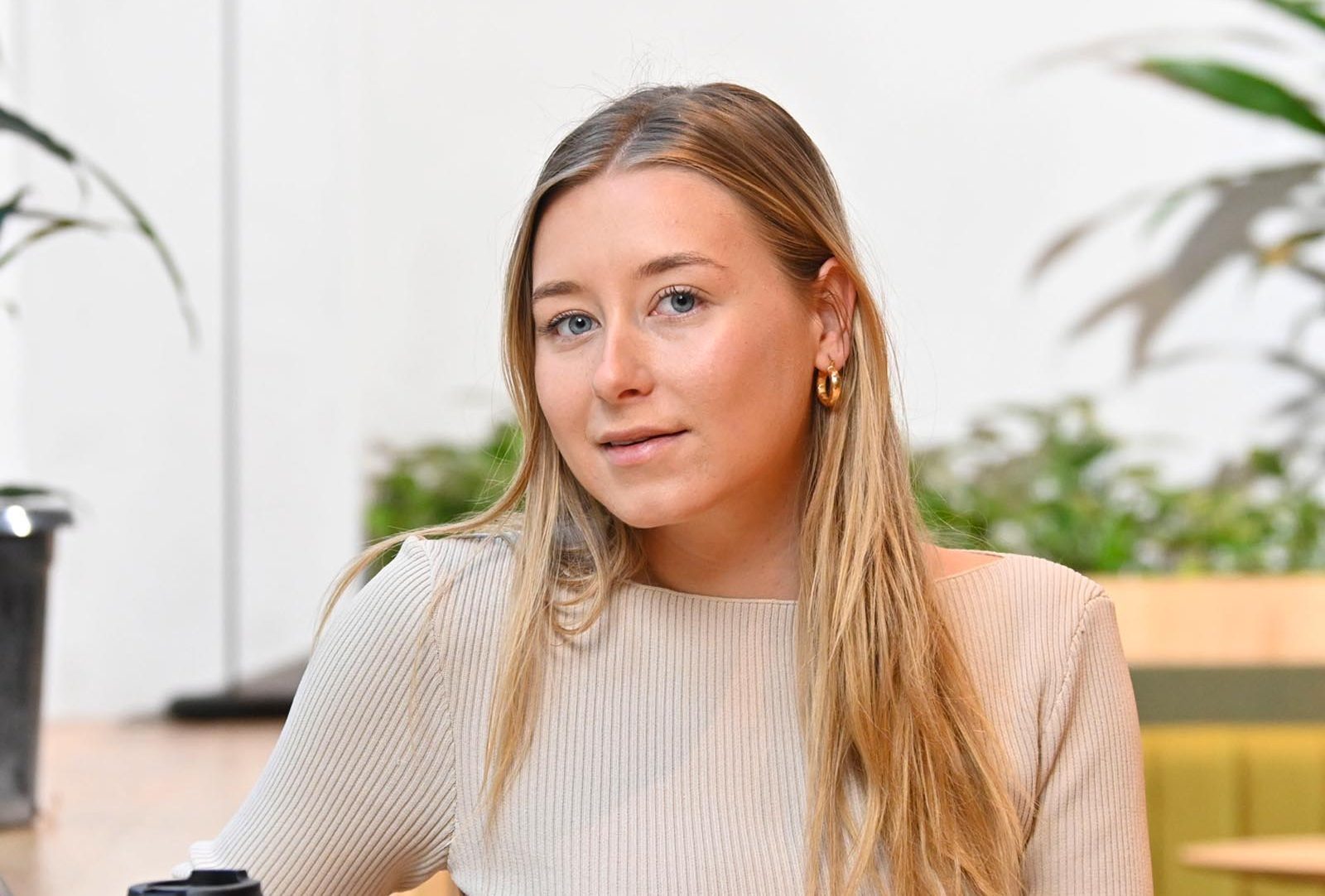International Women’s Day is a global celebration of women’s social, economic, cultural, and political achievements. It’s not just a one-time event celebrating women’s rights; it’s also an opportunity to discover the stories and talents of great women.
With that, we’d like to share some of the views & stories from some amazing women who work at Essence on what it’s like working in the property industry, what gender challenges they have faced along the way, and what we need to do collectively to attract and retain more females in property & construction at all levels of seniority.

Jennifer Lavery
Associate Director
Jen’s background mixes property facilities management in legal practice with office fit-outs before focusing on healthcare development.
With her specialist knowledge of health licensing requirements and the regulatory environment, she leads the healthcare team at Essence, focused on the design, construction and refurbishment of private hospitals and mixed-use health and education buildings.
Describe your leadership style and how you ‘lead’ others. Is it different from your male counterparts?
My leadership style is to empower my team, supporting them by giving them the tools needed to be effective and allowing them to work in a way that best suits them. Through empowerment, my team feel more confident in their abilities and delivers projects with greater care. It’s hard to compare my leadership style with my male counterparts as everyone is different; however, I believe it is less ‘transactional and directive’ and more cooperative’.
What has been the most significant barrier in your career?
Like many of my female peers and colleagues, I have probably been the greatest barrier to my career. I regularly second-guess myself and suffer from ‘imposter syndrome’. I feel this pressure was particularly exacerbated in the heavily male-dominated construction environment.
Thankfully, the perception of female leads in construction is changing, and gender bias is becoming less of an issue in younger generations. This societal shift and years of experience mean I no longer question why I’m at the table.
Why would companies benefit from having more women in leadership positions?
Diversity is well-established as beneficial for growth and productivity as it improves problem-solving and innovation.
In addition, ‘working mums’ wear many hats that drive us to be more productive, decisive, and empathic. The emotional intelligence many women bring to the workplace improves collaboration and communication, benefitting our colleagues, employers, and clients.

Alice Croxson
Associate Director
Alice hails from Newcastle, where she studied for a Bachelor of Construction. She is a true professional with more than 17 years of experience in the property & construction industry.
Prior to joining Essence, Alice worked for several tier 1 developers, including Lendlease, Brookfield Multiplex and Stockland. She has played key roles in numerous significant state developments. When she’s not working, she’s a mum to her two-year-old daughter.
How does Essence promote equity?
As an organisation, we understand the difference between ‘equality’ and ‘equity’ and have engrained equality in our recruitment, performance reviews, and remuneration. We increasingly understand ‘equity’, considering diverse lived experiences and adapting our policies to address imbalances. For example, we recently revised our parental leave policy to provide more flexibility to address imbalances around parenting responsibilities.
Do women in your profession have a hard time getting promoted?
I’d say five years ago, absolutely! However, this is changing with employers becoming more aware of the benefits of diversity and have a broader understanding of other management styles.
Describe your leadership style and how you “lead” others. Is it different from your male counterparts?
My leadership style is very collaborative. I foster open communication in my team which encourages honesty and excellence. I don’t expect everyone to have the answers 100% of the time but to work as a team to get them. I trust my team implicitly, whether it is a decision on a project or a request for flexibility to work remotely. I demonstrate trust from the beginning of the relationship – this isn’t something that needs to be earned.
I believe that men feel more pressure to have the answers or know the right direction to take. Whereas I prefer to involve my team in this process, as there is usually more buy-in, and it also builds confidence in the team to understand the thought processes involved in decision-making.

Ebony Sharman
Project Director
Meet Ebony Sharman. Ebony spent the first part of her career in contractor project delivery before switching to client-side.
Ebony is more than a great project director and a trusted leader. She is passionate about social responsibility and supporting females to champion the industry. She is the Victorian State Manager for Women In Design & Construction (WIDAC) and has been a student mentor for over five years for RMIT University School of PCPM.
What the best advice you ever got, and from whom?
The best advice I ever received was from a university professional who told me to get mentored throughout my career.
What do you see as the next big trend in our field?
I’d like to think the advocacy a lot of women are doing now will result in young girls and women seeing the industry as desirable and will enter the construction and property industries.
Who inspired you to be a leader and why?
The lack of female representation at University and in my early career inspired me to follow a leadership pathway.

Kylie Chu
Project Director
After studying architecture and construction management, Kylie landed a career in project management where she could best utilise her skills and knowledge.
During her 12 years as a project manager, she’s had a particular focus on education facilities and hotel redevelopments. She is working on the redevelopment of the Sandstones Lands Building and a refurbishment project at the Sofitel Wentworth.
What does your typical day look like?
There’s not any such thing as a typical day. My role is about solving problems, which can vary depending on the project stage. Often during the design and approvals phase, problem-solving centres around buildability issues, managing changes and the ramifications of it, such as budgeting, procurement, and program impact.
Much time is spent communicating with stakeholders and ensuring everyone is on the same page. As a project director, my role also entails mentoring younger project managers, which I have enjoyed immensely and has helped me grow as a leader.
What advice would you give to the next generation of female leaders?
Don’t hesitate to ask for help or put your hand up for opportunities. Recognising your strengths and understanding you got the job as the best person for the position will help you ground yourself when you feel the pangs of self-doubt.
Have you been confronted with gender-related roadblocks in your career?
When I started my career, I had to work twice as hard to prove my competence and earn the respect of those I worked with. Being second-guessed by others often led to self-doubt, impacting my confidence to share my opinions.
As a female in construction, I still feel questioned more than I need to be, but over the years, I’ve become more resilient and realised it’s not a reflection of my capability.
What strategies can work well to promote inclusion in the workplace?
Understanding bias and building awareness is the first step towards real change. Unconscious biases do not necessarily align with our conscious beliefs or declared beliefs, so it’s something to pay more attention to.
Through training & education, we can make others aware of their unconscious biases, what actions continue to reinforce them, and what we can do differently.

Abbey Driessen
Project Manager
Abbey is gifted project manager with an honours in civil engineering, who is known for tackling challenging projects.
Since her arrival at Essence two years ago, she has been project managing The Ribbon in Darling Harbour; and helping the client navigate significant challenges including two insolvent builders.
How would you describe Essence’s culture?
Essence’s culture encourages employees to enjoy their work, openly communicate and build strong relationships with their colleagues. They recognise the importance of work-life balance and provide employees with the flexibility to juggle commitments outside of work.
What inspired you to have a career in project management?
I’m motivated by a sense of achievement which led me into my career choice. Project management offers the opportunity to make a tangible impact on a project and has taught me various other transferable skills, including communication, leadership, problem-solving, and negotiation.
How can we stop gender bias?
Educate employees about their own unconscious biases. This helps employees to understand their biases and to work towards eliminating them.
A good starting point is an open discussion about people’s experiences with gender bias and its effect on them in the workplace. In addition, company policies should support initiatives that promote gender equity.
What factors impact a woman’s ability to lead others?
Gender bias exposes women to more judgement than their male counterparts. Women are often perceived as too emotional or soft, or they can face criticism for being too assertive or ambitious.
In addition, women often communicate in ways that are seen as less authoritative or less confident than traditional male leadership styles. Men use language to exert dominance and achieve tangible outcomes, while women, on the other hand, value cooperation and use communication to enhance social connections and relationships.
By recognising other leadership styles and allowing women to perform stereotypical masculine jobs and vice-versa, we can normalise the idea of all genders in all positions.

Bec Mahoney
Project Manager
Bec has a Master of Architecture and a Bachelor of Environments from the University of Melbourne.
She keenly understands the design process with an interest in heritage conservation, adaptive reuse, and sustainable practices.
What projects are you working on at Essence?
I’m working on a vast portfolio of education, health, hotel and aged care projects across NSW and VIC, including Health Translation Hub, Lourdes and Cardinal Freeman Retirement Villages, and Pascoe Vale Girls College, Stawell Secondary College and Pro-bono HAA Lakehouse.
What does a typical day look like?
In project management, every day is different and dependent on the phase of each project. For example, most of my projects are in the ‘design phase’, so my days are focused on consultant design workshops which can go for several hours while you flesh out the project requirements and coordination between disciplines. On the other hand, one of my projects has commenced construction, so I’m regularly on-site meeting with the contractor working through each step of construction.
Do you feel confident enough to raise your opinions at work?
Very much so I don’t believe there are any communication barriers at work; there’s a culture of openness at Essence which is promoted by the 1:1 sessions, line manager meetings and hiring practices that have brought a fun and unique group of people together.
What opportunities have you come across in your career?
The greatest opportunity I’ve been given was the chance to move from architecture to client-side project management. With my master’s completed and only a year working in architecture, I knew it wasn’t what I wanted to pursue; however, it felt like a huge turnaround from what I’d spent the last six years working towards. I was trusted with a new role that was completely new to me and allowed me the opportunity to learn unencumbered.
As a young woman, it felt daunting to move into a predominantly male industry; however, since my move into project management, I’ve continually been granted the opportunity to work independently and establish myself in the industry whilst receiving the support and mentorship from my leaders.
What strategies can work well to promote inclusion in the workplace?
Having a strong representation of senior female leadership is important to me. When the ‘gender split’ is stacked on the lower of the hierarchy with no female leaders to aspire to, I think it shows that female leadership is not valued strongly enough by an organisation.

